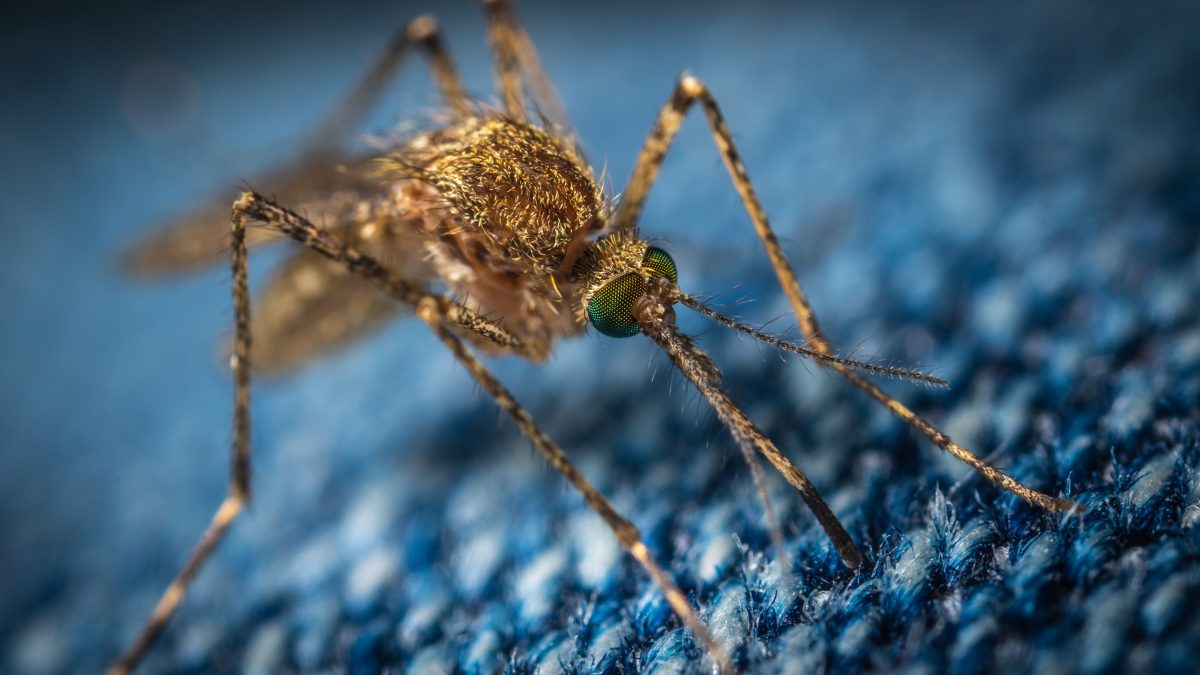
The Buruli ulcer is most likely spread by mosquitoes. Photo: Еrop Kamalev.
The authors of a new research paper have warned that a flesh-eating ulcer could spread along the NSW coast after three cases were found in the southern part of the state in recent years.
The Buruli ulcer, caused by Mycobacterium ulcerans, is an under-recognised and debilitating soft tissue infection that usually causes non-healing ulcers, The Australian Journal of General Practice says.
The authors of a new research paper, published on PLOS Neglected Tropical Diseases last week, examined two locally acquired cases of Buruli ulcer in Batemans Bay.
In the first, a 94-year-old eventually had a finger amputated after his wound progressively worsened in December 2020.
Then, in May 2023, a 71-year-old noticed a mosquito bite on his arm. The bite eventually turned into a 4 x 4 centimetre ulcer, which improved three months after starting a strong course of antibiotics.
These two cases were linked to an earlier case in Eden, about 200 km to the south.
“It is proposed that Batemans Bay is a new endemic focus of human Buruli ulcer transmission,” the research paper’s authors said.
They also said surveys confirmed the presence of Mycobacterium ulcerans in Batemans Bay’s possums.
“Victoria has seen a significant public health challenge with Buruli ulcer, where the evidence points to zoonotic transmission from native possums to humans via mosquitoes,” the authors said.
“The new cases we report here in Batemans Bay could be a harbinger of a disease expansion in NSW similar to Victoria.”

It is believed Buruli ulcers may spread to humans from possums via mosquitos. Photo: Ian Bushnell.
The authors said the strain of ulcers in Batemans Bay showed the propensity for Mycobacterium ulcerans to become established in new geographically separate possum populations.
“The risk for further spread along coastal NSW is significant,” they said.
“Given the many similarities in wildlife composition and insect presence between coastal Victoria and Eden and Batemans Bay in NSW, it is likely that NSW Public Health authorities are now facing the progressive expansion of Buruli ulcer endemic areas and an increase in human infections, just as has been in Victoria.”
When contacted for comment on Wednesday (18 December), a spokesperson for the Southern NSW Local Health District (LHD) said there were no updates to provide since the LHD released a statement about the local cases in September 2023.
At the time, the LHD urged the community to be alert to ulcer symptoms and to avoid mosquito bites after the three local cases were discovered.
“All three people are understood to have been infected locally and are the only local transmissions observed in New South Wales to date,” the LHD’s senior medical officer, who is also one of the authors of the research paper, Dr Anton Forsyth said.
The discovery also resulted in ACT Deputy Chief Health Officer Dr Sally Singleton issuing a warning to Canberra’s clinicians in December 2023.
“Please consider a diagnosis of Buruli ulcer in your patients who have spent time in the Batemans Bay area or in other known endemic areas, including coastal regions of Victoria, Far North Queensland and the Northern Territory, if they have a non-healing, enlarging skin ulcer with undermined edges, with no alternative explanation and not responding to routine antibiotic treatment,” she said.
Buruli ulcers have been routinely reported in parts of Queensland, the NT and Victoria. The number varies widely from year to year but has increased to 200 to 340 cases each year since 2017.

Two cases of Buruli ulcer have been found in Batemans Bay over the past few years. Photo: Kim Treasure.
Dr Forsyth said it was not spread from person to person and was most likely spread by mosquitoes.
“Residents can prevent mosquito breeding by removing items around their home that might collect water, such as old tyres or empty pots,” he said.
“Drainage issues should be addressed so that water does not become stagnant. Ensure coverings for windows and doors have insect screens with no holes or gaps in them.”
An LHD spokesperson said the Buruli ulcer typically starts as a painless nodule or papule, often mistaken for an insect bite, and eventually progresses into an ulcer, which can last many months.
Patients usually report symptoms around four to five months after being bitten by a mosquito, but symptoms may not appear for up to nine months.
“Early recognition and treatment are important. Effective treatment consists of eight weeks of special antibiotic therapy. Anyone who is concerned about a non-healing skin ulcer should see their general practitioner,” the spokesperson said.












